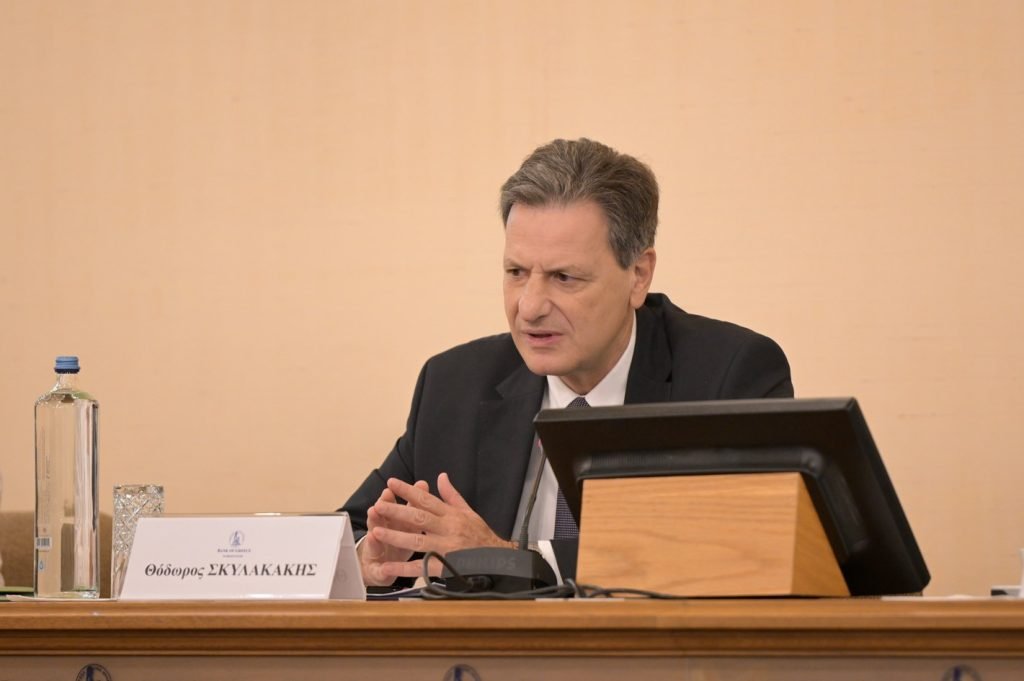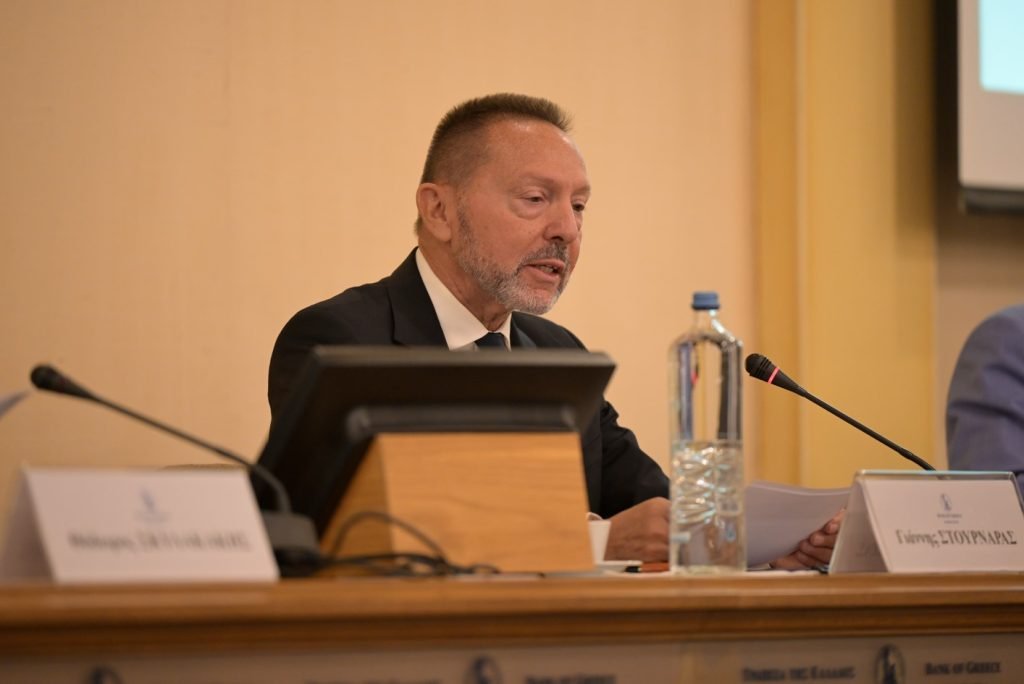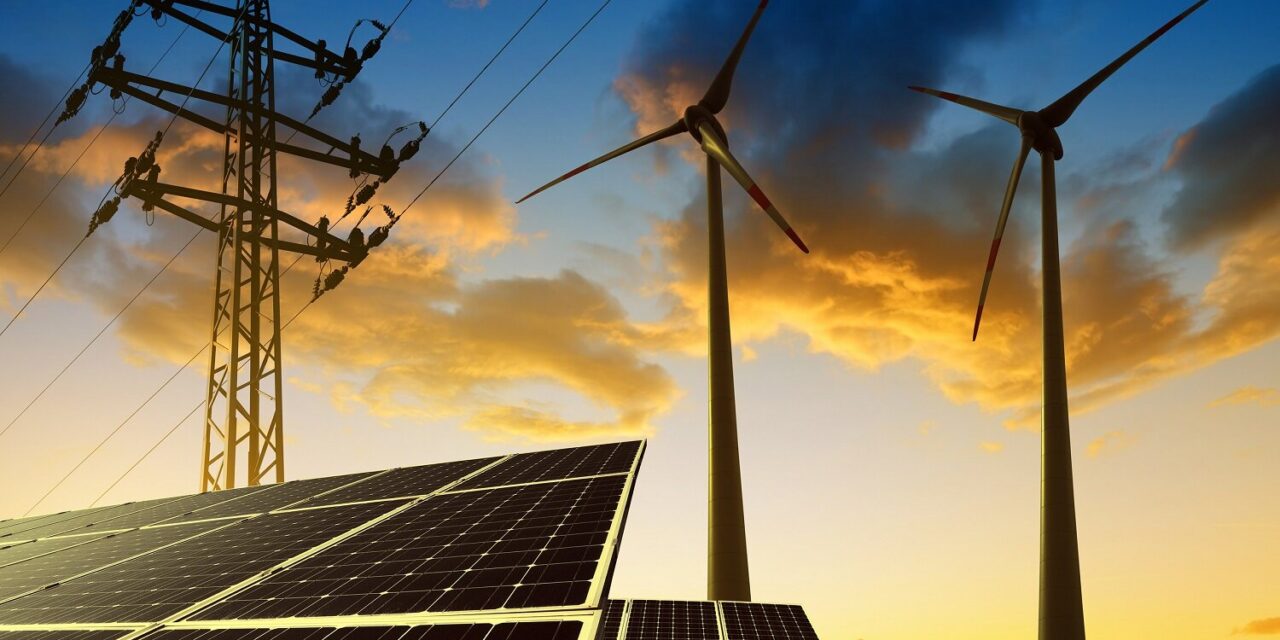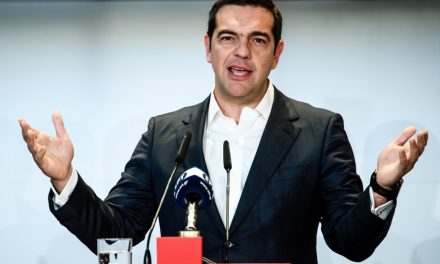Greece’s Ministry of Environment and Energy has introduced the updated National Energy and Climate Plan (NECP), which outlines the country’s strategy to achieve specific energy and climate targets. The plan sets forth ambitious goals, including a 58% reduction in greenhouse gas emissions by 2030, an 80% reduction by 2040, and achieving full carbon neutrality by 2050.
During the press conference for the presentation of the plan, Environment and Energy Minister Theodoros Skylakakis noted that the updated NECP balances ambition with realism, taking into account progress since the original 2019 plan. He underlined hat Greece has exceeded previous targets for renewable energy integration and emissions reduction. Minister Skylakakis proudly stated that Greece is leading the way in these areas, saying that the country has “achieved better results than others” and has already surpassed its goals for renewable penetration and emissions cuts.
The revised strategy signals the end of energy subsidies and emphasizes efficient, cost-effective investments to facilitate the energy transition. Skylakakis pointed out that the NECP’s 2025-2050 revision will support Greece in becoming fully energy independent, stating, “For the first time since the Industrial Revolution, Greece has the opportunity to achieve energy independence.”
“This plan will significantly reshape the country’s economy,” he said, forecasting substantial changes in the years to come that will foster economic and industrial growth, improve the country’s financial stability, and lay the groundwork for a robust Greek economy well into the future. Skylakakis also highlighted the NECP’s consumer benefits, noting that “investments with a very low marginal cost” will result in the provision of affordable, clean, and abundant energy.
As Greece shifts to renewable energy, electrification, advanced technologies, and greater energy efficiency, the average electricity cost is expected to drop from 145 euros per megawatt-hour to 95 euros per megawatt-hour by 2050.
The primary aim of the updated NECP is to tackle climate change, with a strong focus on green electricity production. Currently, renewables make up 55% of electricity generation, with plans to increase this to 75% by 2030 and 95.6% by 2035. The NECP also outlines plans to install smart consumption meters for 7.5 million energy connections by 2030. Over the next two decades, biogas and hydrogen will be incorporated into energy use, and energy-saving initiatives will be central, with more than 800,000 building renovations scheduled between 2040 and 2050.
Following Skylakakis’s presentation, Deputy Minister of Environment and Energy Alexandra Sdoukou elaborated on the revised NECP’s key elements. She described the plan as a blueprint for a new growth model focused on green transition, digital innovation, reduced energy costs, modernized infrastructure, and boosting domestic value creation. She emphasized the NECP’s potential social impact, highlighting policies that will provide citizens with affordable, clean energy, while also spurring economic growth, increasing GDP, and generating jobs.


Professor Pantelis Kapros from the National Technical University of Athens, who is part of the NECP Inter-Ministerial Committee, addressed concerns over the costs of transitioning to green energy. He stated that “economic analyses show that the costs are manageable,” noting that while investment will total 450 billion euros, these expenses are necessary and will be more efficient over time. He emphasized the importance of the plan’s financial feasibility.
Dimitris Kardomateas, Head of the Office of the Secretary General for Energy and Mineral Resources, underscored the ambitious targets, including reducing greenhouse gas emissions by 58% by 2030 and 80% by 2050. He stressed the importance of focusing on electricity generation, the main source of emissions, due to its potential for cost reductions. The technology is mature, ready, and supported by investors, but challenges remain in reducing legal delays to ensure timely implementation.
The Governor of the Bank of Greece, Yannis Stournaras, present at the NECP’s unveiling, stressed that “there is no room for complacency in the face of climate change.” He called for a cohesive action plan to reduce reliance on fossil fuels and emphasized that meeting these goals will require an investment of 436 billion euros by 2050. This initiative is expected to contribute 6 billion euros annually to the country’s gross value added and provide a 2.5% yearly boost to GDP. Additionally, it is anticipated to create 210,000 sustainable jobs each year.
In the renewable energy sector, Greece aims to achieve a 76.8% share of renewables in electricity production by 2030, down slightly from the previous target of 80%. Solar capacity is projected to reach 13.5 GW, with onshore wind at 8.9 GW and offshore wind at 1.9 GW. These figures are close to those in the earlier plan. Energy storage targets include 6 GW, split between 4.32 GW in battery systems and 1.74 GW in pumped hydroelectric units—1.2 GW higher than in the original plan.
Natural gas will continue to serve as a transitional energy source, with installed capacity expected to rise by around 800 MW to 7.8 GW by 2030. To support investments in this area, a capacity mechanism will be developed in consultation with the European Commission. For the building sector, 409,000 energy-efficient upgrades are planned for this decade, while electric vehicles will benefit from an expanding charging network as prices continue to fall, approaching those of conventional cars.
Overall, Greece aims to cut CO2 emissions by 58.6% from 1990 levels, in line with the European Union’s goal of 55%. To meet these updated targets, an estimated €95 billion ($104 billion) in additional investment will be needed by 2030, funding initiatives like energy efficiency in buildings, expansion of solar and wind capacity, and energy storage enhancements. By 2050, total investment is expected to reach €330 billion ($363 billion), aiding Greece’s goal of climate neutrality.
This updated NECP reflects Greece’s dedication to combating the climate crisis and speeding up its shift to renewable energy, setting an example for other EU nations and signaling new opportunities for investors and stakeholders in the green energy sector. You can view a presentation of the plan here (pdf, in Greek).
I.L. With information from APE-MPA, Energy News, To Vima, Balkan Energy News
TAGS: CLIMATE CRISIS | ENERGY | GREEN POLICIES | RENEWABLE ENERGY SOURCES














